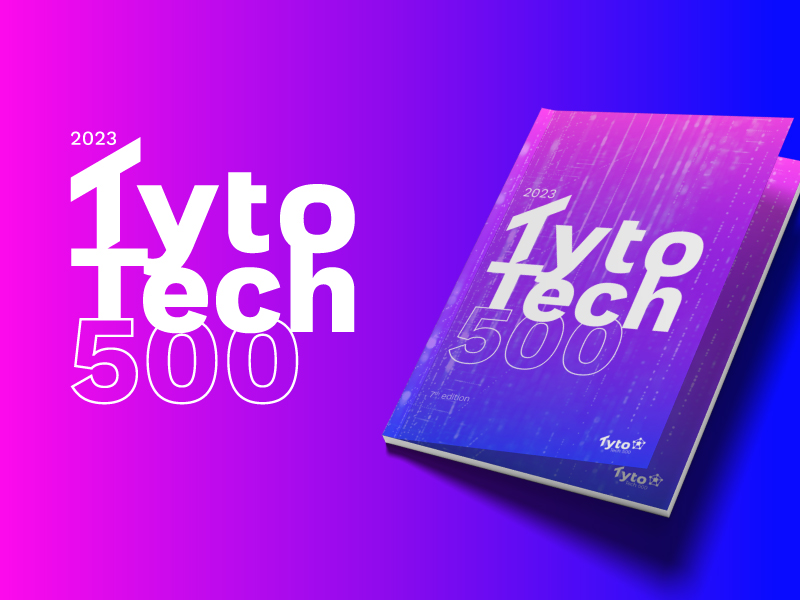Maja Pawinska Sims 16 Nov 2023 // 9:00AM GMT

LONDON — Journalists have been identified as the most influential voices in the European technology industry in 2023, overtaking business leaders for the first time in seven years, according to the latest Tyto Tech 500 study.
The number of journalists in the Tech 500 ranking has risen by 38% since 2021, and now make up 198 of the 500 most influential individuals in the annual list put together by pan-European technology agency Tyto.
The Tech 500 identifies the most influential individuals in the technology sector across the UK, Germany, France and – for the first time this year – the Netherlands and Sweden. The research team uses a proprietary methodology that assesses an individual’s traditional earned media and online influence.
Tyto senior partner and head of media and influence Zoë Clark told PRovoke Media: “We talk a huge amount in PR about influence, how to get it, who has it and how to measure it. The Tech500 lifts the bonnet on influence in the tech landscape. It’s hugely extensive, taking over 1,000 hours of data-driven research – not our subjective take – and it’s relied on by clients and prospects looking to get a view of influence in one of the countries we look at, or those abroad, especially in the US, into who’s trusted; it helps to shape conversation and thinking around PR strategies.”
Journalists featured in the list of the top 20 most influential individuals for the European technology industry include BFM Business broadcaster François Sorel; Sarah Butler, retail correspondent at the Guardian; and BBC science correspondent Jonathan Amos.
Clark said: “The biggest change is that for the first time, journalists are deemed the most influential group beyond business leaders, academics and politicians. I think there are two reasons: while we can’t say the media is more trusted in general terms, this does show the enduring importance of good sources and journalism, especially against the relentless spread of fake news in B2B and B2C.
“People are paying more attention to where journalism coming from, whether it’s a trusted source and expert commentary, so those journalists are really carrying more influence. Also, it’s simply becoming more part of journalists’ jobs to raise their own profile and be more visible on social.”
The research also shows influence in the European tech industry is heavily weighted towards the private sector: 37% of the most influential figures are business leaders. At a country level, business leaders make up 51% of the most influential in the UK, 70% in France, 64% in Germany, 62% in Sweden and 25% in the Netherlands.
Female representation in the pan-European Tech 500 has increased from 22% in 2021 to 27% in 2023. Most female influencers belong to the business leader and journalist categories, accounting for 78% of women in the pan-European top 500.
The UK leads the way for female representation as 30% of the country’s top tech influencers are female, closely followed by Germany (28%), France (23%), Sweden (21%) and the Netherlands (15%).
Women featured in the top 50 include Germany’s federal minister for foreign affairs Annalena Baerbock; Helen Dickinson, CEO of the British Retail Consortium; UK MP Caroline Lucas; and Bloomberg tech columnist Parmy Olson.
Clark said she was encouraged by the narrowing of the gender gap but would like to see more action more quickly, particularly as promoting women in STEM has been on the agenda for some time: “It’s shocking that women are still trailing men by a ratio of three to one, but it is promising to see female representation has increased. We’re still seeing the same challenges in getting senior women in technology to participate in events and high-level speaking opportunities.”
The most influential figures in the ranking mainly come from four major tech sectors: general tech, enterprise, fintech, and consumer technology, collectively constituting 58% of the Tech 500. This mirrors the previous year, but two other sectors have shown rapid growth in influence: in two years, the number of influencers related to spacetech has risen by 350% and cybersecurity by 43%.
For the second consecutive year, Richard Branson, British business magnate, investor and founder of the Virgin Group is identified as the most influential person in the European technology sector.
In terms of what the findings mean for agency and in-house communicators working in the technology industry, Clark said: “The key thing is that the influence landscape differs across Europe: every country has local nuance, and for organisations looking to build their reputation across Europe, it’s essential to understand the local influencer landscape and the topics driving the most relevant conversations, whether that’s spacetech, AI or policy, so this data can be used to map and plan campaigns.”



































.jpg)

















